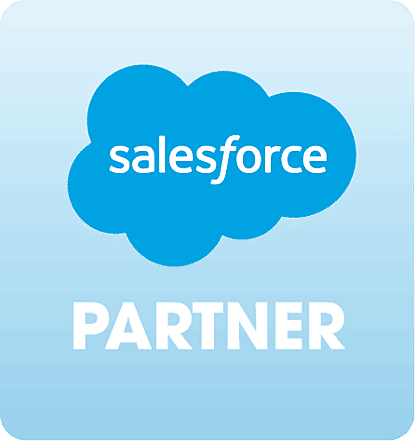Transforming Patient Care and Healthcare Management
Transforming Patient Care and Healthcare Management
Patient Care and Healthcare Management.
In the modern age of healthcare, where precision, personalization, and efficiency are paramount, technology has become the cornerstone of a successful healthcare system. Salesforce Health Cloud stands at the forefront of this transformation, offering healthcare providers a powerful platform to manage patient relationships, streamline processes, and ultimately, deliver better care. In this comprehensive guide, we’ll delve into the capabilities of Salesforce Health Cloud, exploring how it’s revolutionizing the healthcare industry and why it’s a must-have for healthcare organizations aiming to stay ahead in a competitive landscape.
Understanding Salesforce Health Cloud
Salesforce Health Cloud is a patient relationship management (PRM) platform built on the Salesforce CRM platform. It is designed specifically for healthcare providers, including hospitals, clinics, pharmaceutical companies, and insurance companies, to manage patient relationships, improve care coordination, and enhance patient engagement. With Health Cloud, healthcare organizations can integrate clinical and non-clinical patient data from multiple sources, providing a 360-degree view of the patient.
Key Features of Salesforce Health Cloud
Patient 360-Degree View
The cornerstone of Salesforce Health Cloud is its ability to provide a comprehensive 360-degree view of each patient. This feature consolidates data from electronic health records (EHRs), wearable devices, appointment histories, and more into a single view. Healthcare providers can access all relevant patient information at a glance, including medical history, current medications, lab results, and social determinants of health. This holistic view enables providers to make informed decisions and offer personalized care plans.
Care Team Collaboration
Effective healthcare relies on the seamless collaboration of multidisciplinary care teams. Salesforce Health Cloud facilitates this by allowing care team members, including doctors, nurses, specialists, and caregivers, to communicate and collaborate within the platform. This real-time collaboration ensures that everyone involved in a patient’s care is on the same page, reducing the risk of miscommunication and improving patient outcomes.
Personalized Patient Journeys
In today’s patient-centered healthcare environment, personalization is key. Salesforce Health Cloud enables healthcare providers to create personalized care plans and patient journeys. Through automation and AI, the platform can send tailored communications, reminders, and educational content to patients based on their specific conditions and needs. This level of personalization not only improves patient engagement but also enhances adherence to treatment plans.
Advanced Analytics and Reporting
Data-driven decision-making is essential in healthcare. Salesforce Health Cloud offers advanced analytics and reporting capabilities that allow healthcare organizations to track key performance indicators (KPIs), patient outcomes, and operational efficiency. With customizable dashboards and real-time reports, providers can gain insights into trends, identify areas for improvement, and make informed decisions to optimize care delivery.
Interoperability and Integration
One of the biggest challenges in healthcare IT is interoperability—the ability to exchange and use information across different systems. Salesforce Health Cloud addresses this challenge by offering robust integration capabilities with EHR systems, third-party applications, and other healthcare IT solutions. This ensures that patient data flows seamlessly between systems, reducing redundancy and enabling a more cohesive care experience.
Patient Engagement and Communication
Engaging patients in their care is crucial for improving outcomes. Salesforce Health Cloud offers tools for patient engagement, including secure messaging, appointment scheduling, and portals for patients to access their health information. These features empower patients to take an active role in their healthcare, leading to better health outcomes and increased patient satisfaction.
Compliance and Security
Healthcare organizations are subject to strict regulatory requirements, such as HIPAA in the United States. Salesforce Health Cloud is designed with compliance in mind, offering robust security features to protect patient data. The platform ensures that healthcare providers can meet regulatory requirements while maintaining the highest standards of data privacy and security.
How Salesforce Health Cloud is Transforming Healthcare
Salesforce Health Cloud is more than just a technology platform; it’s a catalyst for change in the healthcare industry. By streamlining processes, improving patient engagement, and enabling data-driven decision-making, Health Cloud is transforming how healthcare organizations deliver care.
Enhanced Patient-Centered Care
With the 360-degree patient view, healthcare providers can offer more personalized and effective care. By understanding each patient’s unique circumstances, providers can tailor treatment plans to address specific needs, improving the overall patient experience. This patient-centered approach is especially important in managing chronic conditions, where ongoing monitoring and personalized interventions are critical.
Improved Care Coordination
Care coordination is a major challenge in healthcare, particularly for patients with complex needs who see multiple providers. Health Cloud’s care team collaboration features ensure that all providers involved in a patient’s care are aligned and informed. This reduces the risk of errors, duplicate tests, and conflicting treatments, leading to better patient outcomes and more efficient care delivery.
Data-Driven Decision Making
Healthcare is increasingly data-driven, and Salesforce Health Cloud provides the tools necessary to leverage this data. By analyzing patient data, healthcare organizations can identify trends, predict outcomes, and make proactive decisions. For example, predictive analytics can be used to identify patients at risk of readmission, allowing providers to intervene early and prevent costly hospitalizations.
Increased Patient Engagement
Engaged patients are more likely to adhere to treatment plans, attend follow-up appointments, and take preventive measures. Health Cloud’s patient engagement tools make it easier for providers to stay connected with patients, whether through appointment reminders, educational content, or secure messaging. This ongoing communication helps patients feel supported and more in control of their health.
Operational Efficiency
Efficiency is a key goal for any healthcare organization, and Salesforce Health Cloud helps achieve this by automating routine tasks, streamlining workflows, and reducing administrative burdens. For example, automating appointment scheduling and reminders can reduce no-show rates, while real-time reporting can help identify bottlenecks in care delivery.
Compliance and Risk Management
Compliance is non-negotiable in healthcare, and Salesforce Health Cloud’s built-in security features help organizations meet regulatory requirements. The platform’s audit trails, encryption, and access controls ensure that patient data is handled securely, reducing the risk of data breaches and associated penalties.
Use Cases: Salesforce Health Cloud in Action
Chronic Disease Management
Chronic diseases, such as diabetes, hypertension, and heart disease, require ongoing management and frequent monitoring. Salesforce Health Cloud enables healthcare providers to create personalized care plans for chronic disease patients, including regular check-ins, medication reminders, and educational resources. The platform also allows providers to monitor patient progress and adjust treatment plans as needed.
Population Health Management
Population health management focuses on improving health outcomes for entire populations, often by identifying and addressing social determinants of health. Salesforce Health Cloud’s analytics capabilities allow healthcare organizations to segment patient populations, identify high-risk groups, and implement targeted interventions. For example, providers can identify patients who are at risk of developing chronic conditions and implement preventive measures to improve long-term health outcomes.
Patient Engagement Programs
Patient engagement is critical for improving outcomes, particularly in preventive care and post-discharge follow-up. Salesforce Health Cloud’s patient engagement tools enable providers to create customized engagement programs. For example, a hospital might use Health Cloud to send automated follow-up messages to patients after discharge, ensuring they understand their care instructions and encouraging them to attend follow-up appointments.
Care Coordination for Complex Cases
Patients with complex medical conditions often require care from multiple providers across different specialties. Salesforce Health Cloud facilitates care coordination by providing a centralized platform where all care team members can access patient information, communicate with each other, and collaborate on care plans. This ensures that patients receive coordinated, comprehensive care, reducing the risk of errors and improving outcomes.
The Future of Healthcare with Salesforce Health Cloud
As the healthcare industry continues to evolve, the demand for innovative, patient-centered technology solutions will only grow. Salesforce Health Cloud is poised to play a pivotal role in this transformation, offering healthcare providers the tools they need to navigate the complexities of modern healthcare.
Artificial Intelligence and Machine Learning
The integration of AI and machine learning into Salesforce Health Cloud is likely to enhance its predictive analytics capabilities. In the future, AI-driven insights could help providers identify at-risk patients, optimize treatment plans, and even predict the likelihood of specific outcomes. This will enable more proactive, personalized care and further improve patient outcomes.
Telehealth Integration
The COVID-19 pandemic has accelerated the adoption of telehealth, and this trend is expected to continue. Salesforce Health Cloud’s ability to integrate with telehealth platforms will become increasingly important as providers look for ways to offer remote care. By integrating telehealth with Health Cloud, providers can ensure that virtual visits are seamlessly incorporated into the patient’s overall care plan.
Social Determinants of Health
Addressing social determinants of health (SDOH) is becoming a priority for healthcare providers. Salesforce Health Cloud’s ability to capture and analyze SDOH data will be crucial in helping providers identify and address factors such as socioeconomic status, education, and housing that impact patient health. This holistic approach to care will lead to more equitable health outcomes.
Global Expansion
As Salesforce continues to expand its global presence, Health Cloud is likely to be adopted by healthcare organizations around the world. This global expansion will require the platform to adapt to different regulatory environments, languages, and cultural norms. However, the core principles of patient-centered care, data-driven decision-making, and seamless care coordination will remain the same, making Health Cloud a valuable tool for healthcare providers worldwide.
Conclusion
Salesforce Health Cloud is more than just a technology platform; it’s a powerful tool that is revolutionizing patient care and healthcare management. By providing a comprehensive view of the patient, facilitating care team collaboration, and enabling data-driven decision-making, Health Cloud empowers healthcare organizations to deliver better, more personalized care. As the healthcare industry continues to evolve, Salesforce Health Cloud will play a crucial role in shaping the future of healthcare, helping providers navigate the complexities of modern healthcare and ultimately improving patient outcomes.
For healthcare organizations looking to stay ahead of the curve, adopting Salesforce Health Cloud is not just an option—it’s a necessity. By leveraging the capabilities of Health Cloud, providers can enhance patient engagement, improve care coordination, and drive better health outcomes, all while maintaining compliance and optimizing operational efficiency.
If you’re ready to transform your healthcare organization with Salesforce Health Cloud, the team at FusionHawk is here to help. With our expertise in Salesforce implementation and healthcare management, we can guide you through the process of adopting Health Cloud and unlocking its full potential. Contact us today to learn more about how we can help you revolutionize your healthcare delivery with Salesforce Health Cloud.









